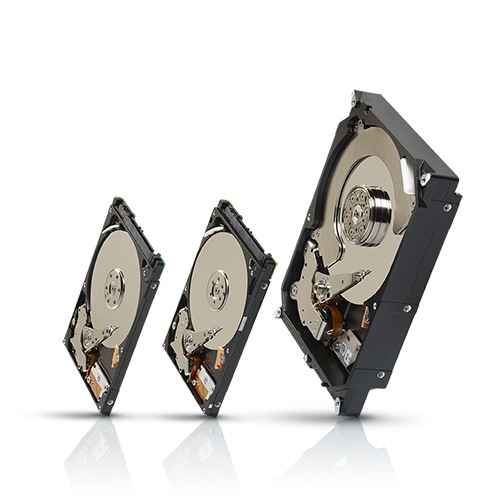 You usually come across hybrid hard drives (SSHD) in laptops and Ultrabooks that want to offer more storage capacity than a solid state drive (SSD), but without the slower boot time of a traditional spinning hard drive or the higher cost of a pure SSD. A hybrid drive is really the best of both worlds for those who are on a budget but want a bit of the speed that machines with SSD enjoy.
You usually come across hybrid hard drives (SSHD) in laptops and Ultrabooks that want to offer more storage capacity than a solid state drive (SSD), but without the slower boot time of a traditional spinning hard drive or the higher cost of a pure SSD. A hybrid drive is really the best of both worlds for those who are on a budget but want a bit of the speed that machines with SSD enjoy.
Now desktop users want the option of adding a hydrid drive to their towers too, but SSHDs typically only fit into laptops (in 2.5-inch wide versions) and not the hard drive bay inside desktops. That’s why Seagate just announced it is shipping a new line of hybrid drives just for desktops, along with several larger capacity SSHDs for laptops.
Desktop users will have happy to know the Seagate Desktop SSHD will offer as much as 2TB of storage plus 8GB of flash memory. This should help with boosting your PC’s start up time without sacrificing on capacity or your wallet. Seagate is so confident in its Desktop SSHD that the company claims it “will perform up to 4 times faster” than traditional hard drives “regardless of the CPU inside.”
If you’re looking to upgrade your laptop’s hard drive to a hybrid, you can boost your storage capacity to 1TB with Seagate’s Laptop SSHD for a standard machine, or get the 500GB model for 7mm-high Laptop Thin SSHD for ultrathin laptops and Ultrabooks. Performance-wise, Seagate’s laptop hybrid drives are supposed to be “5 times faster than a standard 5400RPM notebook hard drive,” which means you’ll be able to start your Windows 8 laptop in less than 10 seconds.
Although Seagate has yet to announce a price for any of its hybrid drive, it did say in the press release that the SSHDs will be available at “mass-market price points.” Expect these Seagate hybrid drives to be priced somewhere between standard hard drives and solid state drives.


